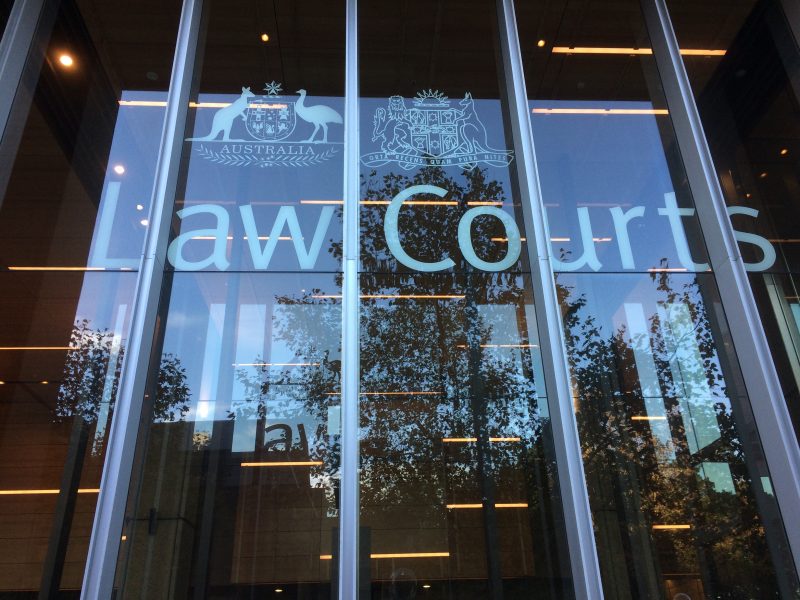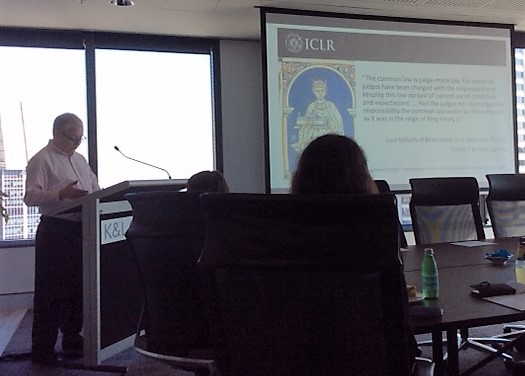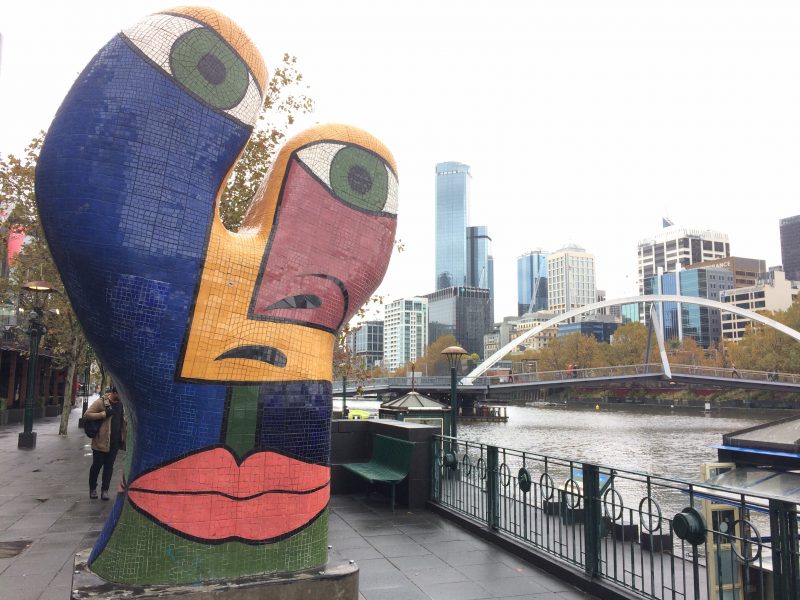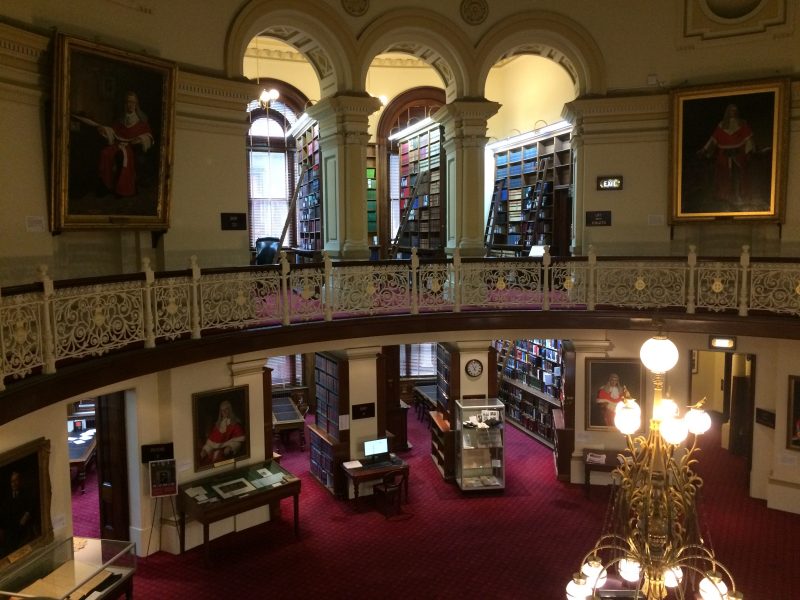ICLR in Sydney and Melbourne, 6-12 May 2018
Continuing their Australian tour after #ALLA2018 in Darwin, Paul Magrath, Head of Product Development, and Paul Hastings, Account Manager went first to Sydney for a few days and then on to Melbourne. They were there to help bang the drum for the respective Councils of Law Reporting for New South Wales and Victoria, as well
Continuing their Australian tour after #ALLA2018 in Darwin, Paul Magrath, Head of Product Development, and Paul Hastings, Account Manager went first to Sydney for a few days and then on to Melbourne. They were there to help bang the drum for the respective Councils of Law Reporting for New South Wales and Victoria, as well as for England and Wales, and to promote the value of authorised law reports in preserving and disseminating the continuing development of the common law.

Sydney
Sydney weather, though unseasonably mild for autumn here, seemed pleasantly balmy after the sweaty heat of Darwin last week. Blue-sky sunny days were ideal for taking a stroll from our apartment hotel near Town Square up to the The Rocks for craft market miscellany and street food under the Harbour Bridge with a view of the iconic Opera House, or to explore the campus and law library of the University of New South Wales in the company of expat academic James Lee, temporarily relocated from King’s College London. In the evening, we enjoyed dinner with our local agents, TimeBase Pty Ltd, at a fashionably waterside eatery in Woolloomooloo.
Next day, among other appointments, we visited the Federal Court and the Supreme Court of New South Wales – which are housed together in the same vast and somewhat brutalist building in Queen Square, whence it casts its monolithic shadow down the length of Hyde Park below. It’s much better being inside the building looking out. We went up to the Law Courts Library, where we were given lots of valuable feedback about ICLR.3.
Autumn Drinks
We returned to same building in the evening for an Autumn Drinks reception co-hosted by ICLR with the respective Councils of Law Reporting for Victoria and New South Wales. Following a warm introduction to the history of authorised law reporting in England and Australia, by the Hon Justice Steven Rares of the Federal Court of Australia, Paul Magrath welcomed the guests on behalf on ICLR; Fiona Hopkins, General Manager, on behalf of the New South Wales Council of Law Reportingl; and Michael Green SC on behalf of the Victorian Council of Law Reporting. The assembled guests included judges, practitioners, librarians and reporters.
ICLR’s message was, in brief, that the common law is a living instrument, continually being adapted, extended and applied in jurisdictions around the globe, in a tradition going back to the reign of Henry II, and that the official or authorised law reports in each jurisdiction play an important role in facilitating that process. Moreover, where the courts of different jurisdictions refer to each other’s case law, it makes sense for the law reports and the legal databases also to interlink to and from each other’s content, enabling a seamless access to cases regardless of the point of entry of research.
The event also provided an opportunity for the various publishers to announce new products and features, and plans for the further development and expansion of their services. In the case of the Council of Law Reporting for New South Wales, this included imminent launch of a new platform enabling overseas users (such as the UK Supreme Court) to read and research the NSWLR online as well as obtaining individual PDFs.
Presentation to ALLA NSW

On 9 May, we visited the offices of K & L Gates in O’Connell Street, where library manager Philip Mullen had booked a seminar room for ICLR’s presentation, to 20 or so members of the local chapter of the American Law Librarians Association, entitled: How common law jurisdictions remain linked through their shared (and reported) history. This traced the history of law reporting and the foundation of ICLR and the other Councils of Law Reporting before discussing some of the areas of law in which the different common law jurisdictions have either followed or departed from each other’s view of the law.
For example, you can trace the ‘trail of the snail’ in the development of the concept of a duty of care in relation to the tort of negligence from the English case of Heaven v Pender in 1883, through the Scottish one of Donoghue v Stevenson in 1932, to the Australian case of Gala v Preston in Australia in 1991.
On the other hand, in the case of extended criminal joint enterprise, paths differ: with the High Court of Australia in the 2016 case of Miller v The Queen preferring its previous ruling in McAuliffe’s case of 1995, following the Privy Council (Hong Kong) case of Chan Wing-Siu in 1984, over the more recent UK Supreme Court / Privy Council decision in Jogee/Ruddock (which had departed from Chan Wing-Siu, considering it a ‘wrong turning’ in the law) – only for the Hong Kong Court of Final Appeal later that year to choose Miller (and Chan Wing-Siu) in preference to Jogee/Ruddock.
The talk ended with a discussion of the future of law reporting in the as yet uncharted world of digital, virtual and online courts, a matter of some concern in England and Wales, but not as yet in Australia, it seems. That may change in time.
Open justice and suppression orders
Of more immediate concern – as we learned from a subsequent conversation with Sydney-based legal journalist Richard Ackland, aka Justinian, editor of the Gazette of Law and Journalism – is the matter of open justice in the physical courts. Thanks to a statute called, in a rather Orwellian way, the Open Courts Act 2013 (Vic), the courts in Victoria are apparently handing out non-publication orders like confetti, without either having to give reasons or giving the media really much of a chance to oppose them. Following an independent judge-led review of it, which recommended “specifically requiring courts and tribunals to provide written reasons for making a suppression order”, the Attorney General of Victoria has issued a discussion paper on the Open Courts Act in his state. There’s a similar statute in New South Wales called, in rather more candid fashion, the Court Suppression and Non-publication Orders Act 2010 (NSW), though that does not seem to be so widely used.
Melbourne
The first thing we noticed upon landing in Melbourne was that it was much colder than Sydney or (still more so) Darwin, and before long that it was also wetter and windier.

Arriving late in the evening, we did not have scope to wander about looking for restaurants, but as luck would have it our rental apartment building seemed to be located in an area rich in Asian cheap eats and street food. We soon found a place where you could build your own dinner, by selecting noodles, prawns, mushrooms, pieces of tripe, vegetables, herbs and a number of things the true nature of which was a matter of doubt, and placing them all in a tin bowl, which was then cooked into a stir-fry or soup, according to the customer’s desire. You pay by the weight of the filled bowl before it’s cooked. As we paid, we were asked to specify whether we wanted it non-spicy, slightly spicy, medium spicy or very spicy. We wisely selected the second option, slightly spicy, which seemed pretty powerful already.
Next day, after breakfast in a tiny cafe just by the law courts in William Street (popular with barristers), we walked up to the University of Melbourne’s law library for the first of two back-to-back training sessions. The second took place at RMIT.
Autumn Drinks (2)
After that, we made our way to the RACV (Royal Automobile Club of Victoria) for the second of our Autumn Drinks receptions, co-hosted with the other Councils of Law Reporting (see above). This time the introduction was by the Hon Justice Macaulay, of the Supreme Court of Victoria, followed by the same three representatives of the respective councils, except in a different order, with Paul Magrath this time bringing up the rear. There was a slightly larger crowd this time, and more of them came along to the after-party, which took place in a discreet but lively piano bar. A lively bunch, the Victorian Bar, and much inclined to patronise the bars of Victoria.
Among the final attractions seen in Melbourne was the elegant library of the Supreme Court of Victoria, opened in 1884, with its magnificent domed circular gallery and radiating reading rooms lined with books (including, in some unfamiliar bindings, a complete set of the ICLR Law Reports and Weekly Law Reports).

And that’s where we must leave it. Tomorrow we return to London. It’s been quite a trip.